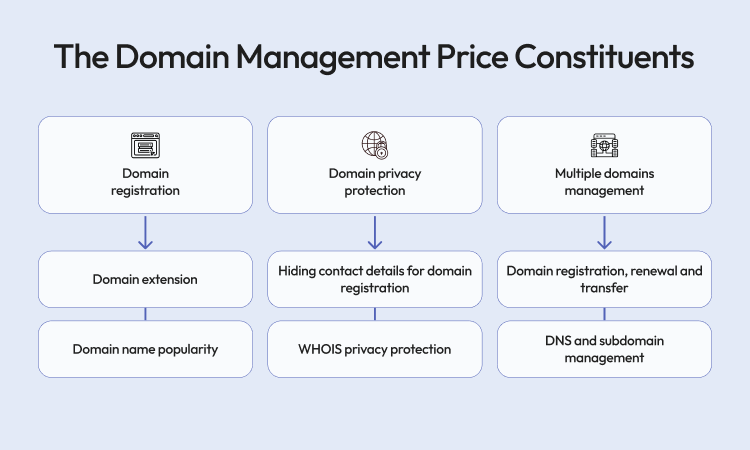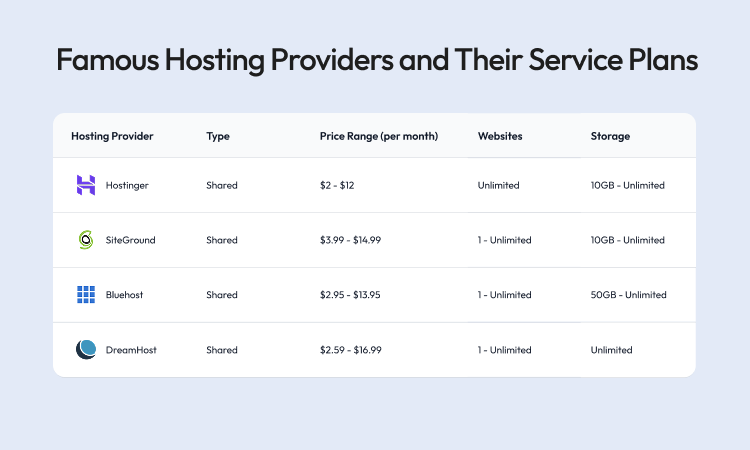
Even if your website is not finished, it needs to be exercised regularly to remain secure, fast, and be able to accomplish what you want it to do after launch. Here is where your maintenance costs come into play: Treating your website like your car, it needs regular check-ups, some repairs every now and then, and major servicing from time-to-time.
So, what are website maintenance costs, how much should you expect to pay, and why are the costs of not maintaining your website a bad idea? Let’s read our prepared post and dive deeper into the topic.
What Does Website Maintenance Include?
Website maintenance is everything you do to keep your website protected, and useful. It is not only about things that break getting repaired. It is stopping problems and malfunctions from happening and creating an easy trip for your guests.
Which usually needs some maintenance
- Software updates: Your CMS (e.g., WordPress), plugins, themes, or other custom code needs to be updated from time to time due to security concerns.
- Security: Prevent and detect malware scans and attacks.
- Ensure proper backups: Scheduled backups are key to help you recover quickly if something goes wrong.
- Performance optimization: Reduce load times, address broken links, and link server tuning.
- Content rolling updates: New posts on the blog, product description changes, or image edits.
- Technical support: Addressing errors, bugs, or modifications you wish to implement.
If you are using e-commerce you will also have to maintain payment gateways, inventory systems, and secure customer data as well. All these components directly also affect your application maintenance cost, which depends on your website’s complexity, tech stack, and business-specific features.
Why Are Maintenance Costs So Different?
Website maintenance costs will vary greatly depending on the size of your website, your needs, and how much you will (or want to) do yourself.
The costs to maintain a simple portfolio site for a freelancer simply pale in comparison to that for a large eCommerce store with thousands of products.
Your expenses will be affected by such things as:
- Complexity of the website: presenting more features means more things to maintain.
- Traffic: sites that receive heavy traffic will need higher-quality hosting and more vigorous protection.
- Volume of updates: regular content updates will increase costs.
- Type of hosting: shared hosting, VPS, dedicated, or managed hosting, all approaches to hosting come with a different price tag.
- Who does the work: are you doing it yourself, or hiring a freelancer, or agency?
Typical Price Ranges
Here are a few of the general cost ranges you might come across.
- Domain renewal: generally $10–$30/year.
- Hosting: anywhere from $2–$10/month for shared hosting. VPS and dedicated hosting cost from $20 to hundreds of $ per month. Managed WordPress hosting costs somewhere from $30–$100/month, but that includes security, updates, and backups.
- SSL Certificate: free with many hosts or premium ($50–$300/year).
- Cost of software updates: the time it takes if you do it yourself. Routine updates could cost $20–$100/month.
- Security monitoring: free, if using plugins or services like Wordfence, or through providers for $5–50/month or more
- Backups: included with hosting, but premium backup services cost $2–$20/month.
- Content updates: you might pay a freelancer $20–$100/hour for this. Agencies usually charge a monthly retainer ($100–$1,000+, depending on the amount of work).
- Full service maintenance plans: will be offered by many agencies or freelancers and will range from $50–$500/month for small sites and much more for large or custom sites and will cover everything from updates to support.
Don’t forget about domain management tasks like DNS configuration, email routing, and registrar transfers — while often overlooked, they may require expert help and can add $10–$50/year or more depending on complexity and provider.

Real-World Use Cases
For example a personal blogger may only pay $10/month because they use a super simple WordPress site and do the updates themselves. Their main cost is time.
For example, a basic small business website with lead forms and a blog might secure managed hosting for $30/month and spend about $100/month for updates and support. They need reassurance that things are being taken care of, without them having to think about it.
A hosted eCommerce solution can cost a mid-sized eCommerce business $300/month or more just for hosting, plus another $500–$1,000/month in maintenance. They simply can not afford downtime or breaches.
Budgeting for Your Website Maintenance
A budget should follow your goals and your risk tolerance.
You cannot risk taking shortcuts if your website is mission critical—especially if it is your store, lead generator, or your brand front and center online.
Allocate funds for hosting, security, and updates on a monthly basis. If you plan on managing it yourself, then just be sure to study up on the maintenance tools and best practices of the platform.
And if you are running your business and have no time, hire someone. There are lots of agencies and freelancers who will create plans that include all the fundamentals wrapped up in a nice little bow, for an easy to anticipate monthly price. Many hosting providers also offer built-in maintenance features like backups, security scans, and performance monitoring, making them a solid foundation for low-effort website upkeep.

The Bottom Line
Website maintenance is not an optional extra. It is vital to maintaining your site functional, safe, and degree. Prices range from several dollars a month for a single-user site to thousands for sophisticated eCommerce stores. But no matter what size your business is, there’s a solution.
Plan for it in your budget. Your website is an investment, so treat it like one. And it will work for you day after day if given proper maintenance.
Author bio
Yuliya Melnik is a technical writer at Cleveroad, a software development company that offers AI consulting services. She is passionate about innovative technologies that make the world a better place and loves creating content that evokes vivid emotions.
